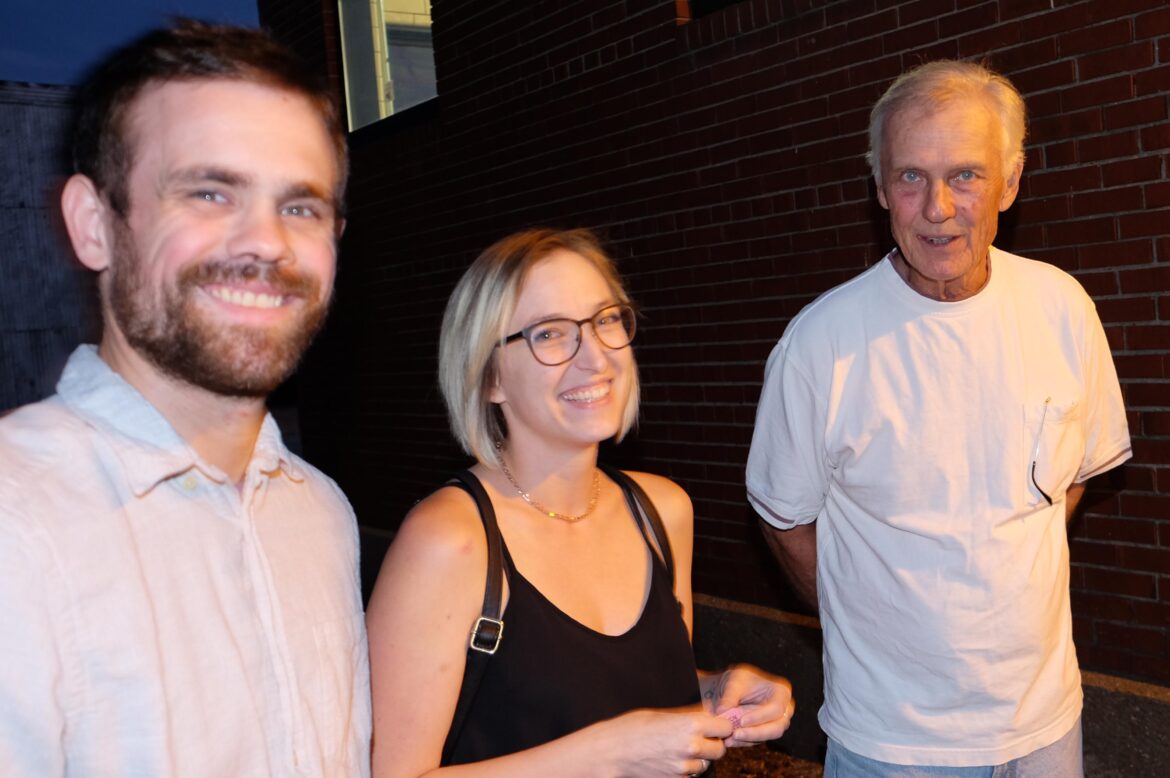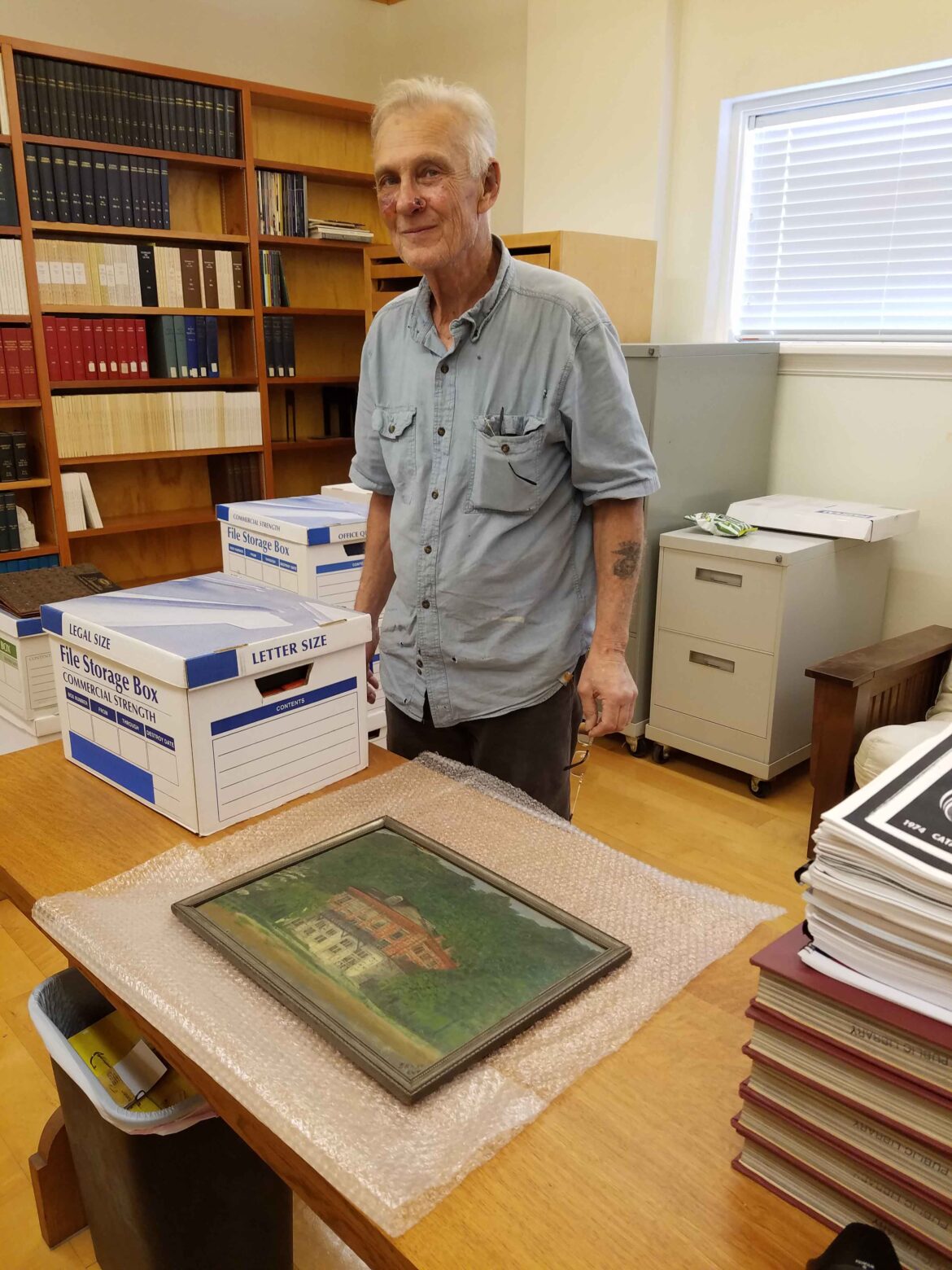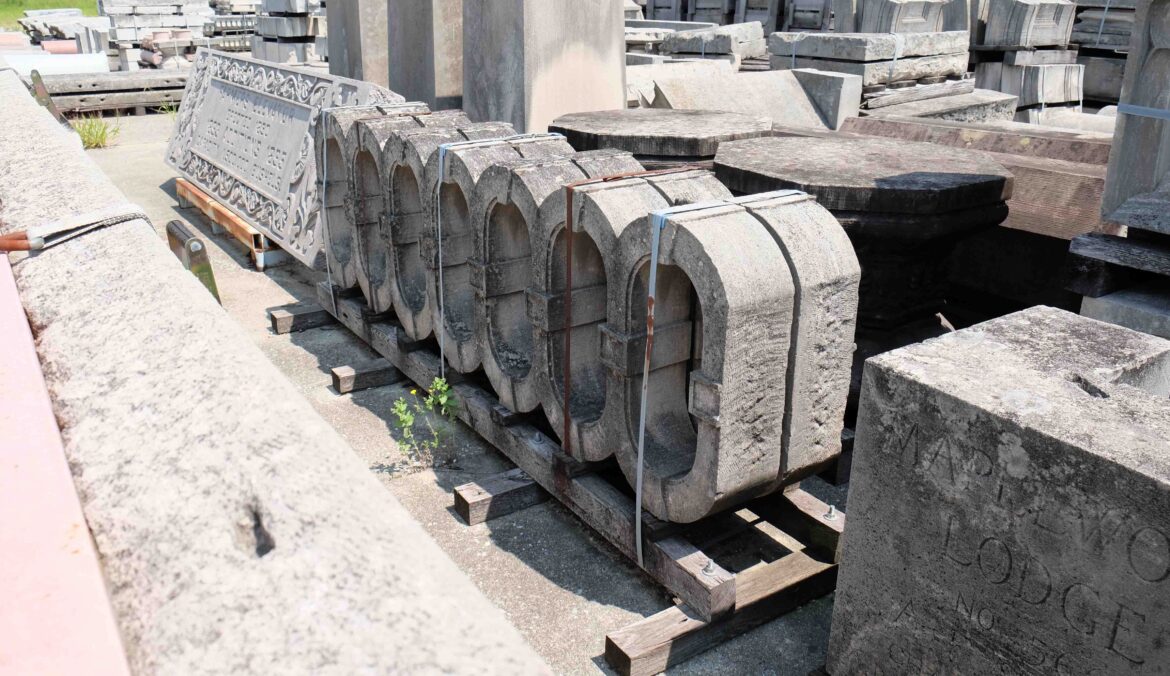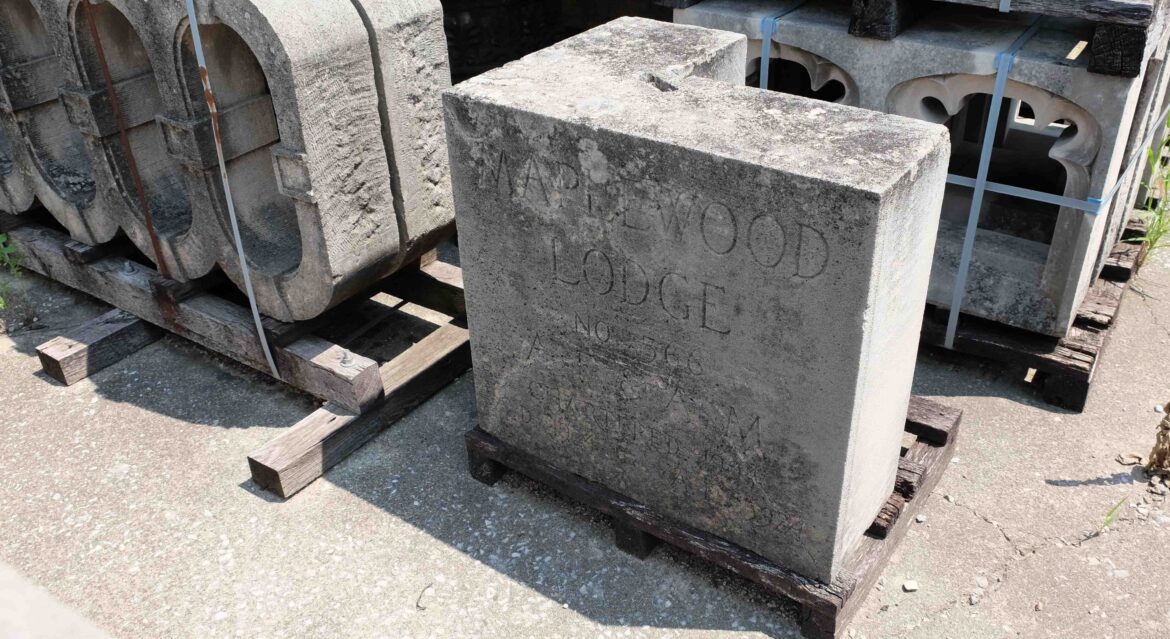In 2002, Larry Giles paid a visit to a commercial art studio in Soulard named Fishing Creek. Recently retired, I was interning there with the idea of possibly becoming a sculptor. The Fishing Creek folks were bartering with Larry for some recycled steel trusses that they used to add a second floor in one of their buildings. We had never met but I had followed his projects for decades in the newspapers.
Following that initial meeting, I got to know and become friends with Larry who was surely one of the most amazing individuals that I will ever meet. He was an architectural salvor and savior. Put simply he acquired a vast collection of the most important architectural artifacts from many of the most important buildings that were ever built in St. Louis and beyond. Eventually he consolidated his vast array of treasures at one location in Sauget, Illinois as a nonprofit named the National Building Arts Center whose mission is to educate the public on all aspects of the building arts.
I am not exaggerating to say Larry was a genius many times over. One might think that removing parts from crumbling buildings is coarse, dirty work and it is. It is also complicated, very dangerous and can be very high off the ground as well. Many of the projects that he conducted (and it was mostly him) are mind blowing in scope. Read about them on his website.
Acquiring the artifacts was just the start of the process for Larry was also a scholar. He did much research, cataloging, cleaning and protecting of all of the artifacts in his collection. He was as adept mechanically as anyone, could weld and kept his fleet of vehicles operating all the while assembling a Research Library containing over 300,000 items!
There is just no one like him. No one can replace him. He was a decent, honest and tough man. Perhaps one of the toughest I ever met. These are some of the saddest words I have ever had to write. Larry died while undergoing treatment for cancer on June 12.
It is my hope that those of us who were lucky enough to have known him can find a way to preserve and promote the work he has done.
Doug Houser June 13, 2021






As the new president of the National Building Arts Center (NBAC), I am heartened by Doug Houser’s tribute and the kind comments here. Larry Giles was my mentor in preservation and left this world far too soon. However he had taken the NBAC to a nearly-impossible level, with our research library largely sorted and available by appointment; the foundry facility rehabilitated to a condition where we have a functional office, space for all of the artifacts and every historic building on its way toward full renovation; and a financially stable institution. However, to take things further everyone who has commented here is needed. The Board is grateful for everyone who will pitch in and take Larry’s vision even further.
Michael, My feeling is that everyone that knows you has confidence in your ability to manage your new position. I know Larry did. There is no denying that yours is a difficult job but I feel that there are many new avenues that will open under your direction. We all will miss Larry but I think we can all take comfort that the NBAC is in capable hands. Good luck to you, your board, staff and volunteers.
Doug, Thank you for putting together this story. I’m deeply saddened by the passing of Larry. He was a mentor to me. I volunteered many hours repairing Architectural ornament for his collection. It’s difficult to express the significance of his work and the devotion he had. Truly a great man. I’m very sorry that I didn’t get to talk to him one last time.
You are welcome, Mark. Ordinarily it would have been a pleasure to do an article about Larry Giles but not this time. As you know he was one of a kind. He spoke highly of you as well. Thanks for your comments. It is good to hear from you.
Readers, Mark Aeling is an internationally known sculptor based in St. Petersburg, Florida. He was one of the principals of the Fishing Creek Studios during my brief tenure. More on Mark and his art can be found here. https://www.mgasculpture.com/
I have continued to struggle in putting into words my feelings so I doubly appreciate your comments. I only knew Larry for the past five years, but in those five years, doing odd jobs for Larry like digitization or research, I learned more about Stl than I had at any time previous to our first meeting. The vastness of his knowledge stretched far beyond simply bricks and mortar, encompassing local activism, politics, neighborhood history and the like.
He did more than enlighten me, he also made me a better collector–showing me different categories of ebay that I had previously discounted, showing me how I could get volumes of books through the library deaccession services…basically showing me how to build a multi-faceted collection on a budget, which is what he had done remarkably well with nbac.
Then about two weeks before his diagnoses, I managed to finally visit at a time when he wasn’t busy. So instead of wandering around alone as I usually did, he led the way. We walked around and he told me stories behind objects like the Anheuser Busch bottling desk, or the Linneum House windows. I had visited that foundry practically a hundred or more times but not until 4 weeks ago did I know the signs shed had lights! So he brought me up to the third level, the first time I’d ever done it.
And he spent 20 minutes talking about trash cans. Not just any trashcans but original 19th century hand hammered bins. Ones he had lent to Sodenburg for King of the Hill. He referenced that movie so much. I finally sat down and watched the movie the other day and broke down. Here I am 4 or 5 years after he first referenced it and encouraged me to watch it, I’m watching it and yet I’ll never get to talk to him about it.
Mark, We can’t thank you enough for sharing these experiences you had with Larry. Your story about the trash cans is interesting and important. It is a reminder that we must look carefully at the collection he left us. All of us who knew him should write about our personal stories with Larry. These should be preserved at his NBAC.
Doug, I too feel your loss. Ive known Larry for about 20 years but knew of him for almost 10 years prior to meeting him. I wanted to be his personal assistant and follow in his footsteps. He and Phillip Cotton were two of my primary mentors that pushed me into Historic Preservation. Losing Phillip was very difficult; now losing Larry on top of that it feels like almost half of my life is flashing before me. I am fortunate to have known Larry, having gone to salvage sites with him, being able to work in his research library, speaking with him on the phone and in person, and most importantly learning from him. I am very worried about the future of his collection and his life’s work… preserving it as an architectural museum/archive in his honor would just be a start in the celebration of his legacy.
I had the same feelings, Matt. I visited a couple of sites while he and his assistant were working them. It was grindingly hard and dangerous work. The fact that he was still alive and had all of his digits and appendages was a testament to the extremely high degree of skills he brought to his work. The weather was hot on one of my visits and extremely cold on another. Sometimes the neighborhoods he worked in could be dangerous, too. I remember he showed me where his pistol was just in case. I decided I just wasn’t up to it.
I think all of us who knew him are wondering what happens next. He has left us the results of his extraordinary life. His valuable collection had an armed guard. That was Larry, too. We need some businesses and individuals with deep pockets to come forward on this one. The fact that the collection is in Illinois may complicate things as well. Thanks for your comments, Matt. It is good to hear from you.
LEGEND
DEFINITELY. Thanks, Matt.
I am certainly sad to hear this news, I don’t think there will be anyone to replace him. Although I don’t have a great knowledge of him I realize how significant his work was, and from what I saw, it was a huge effort. It was more than most people of this world would care to take on.
Definitely is, Gary. Hard to believe but it has been almost three years since Larry let you and I wander at will through his fabulous collection. I’m going to do another post using some of those photos I took that day. I don’t think most folks can possibly imagine the magnitude of what he accomplished. Thanks for commenting.
Doug, we’re so sorry to hear of Larry’s passing. Because of you, we got to go see his amazing collection over in Sauget. It’s like nothing we’ve ever seen. Few of us leave such an impressive historic record when we go. As you say, it’s evidence of his personal intellectual curiosity, persistence, strength, and foresight. Thank you for making us aware of this impressive gentleman.
You are welcome, Margaret. It truly was my pleasure. We are all indebted to Larry. He was a gracious, generous fellow.
Doug,So sorry for the loss of your friend
Thank you, Mary.
So sorry to read this. I never met him but toured his astounding collection in Sauget a few years ago.
His collection was still growing, Robert. Thanks for your expression of sympathy.
Doug sorry to hear that he passed. I have often wanted to take a trip there to see some of the items he has collected but never have. In fact I have never really looked into it too much in the past as it was always a passing thought that I would like to see some of his stuff. Now I wish I had and could have met him. I did not know he had stuff from the school in Maplewood. I remember that building as it was coming down and before. We collected some old books from there before it came down and my kids and I went there several times to see the big equipment taking it down. The kids loved seeing the machinery at work.
So you know what will happen to the collection? Did he have a plan in place for someone to continue with it and not let it just be forgotten?
Hey Mark, Larry was the superintendent, working for Spiritas, of the demolition of the Junior High building in Maplewood. Larry was from Maplewood and lived somewhere near Woodside when he was a child. I asked him years ago if he had the plans in place just in case something might happen to him. He said there were a few things he ought to do. I think he did them. He had a board of directors whose colossal task now will be how to preserve the magnificent collection he left behind.